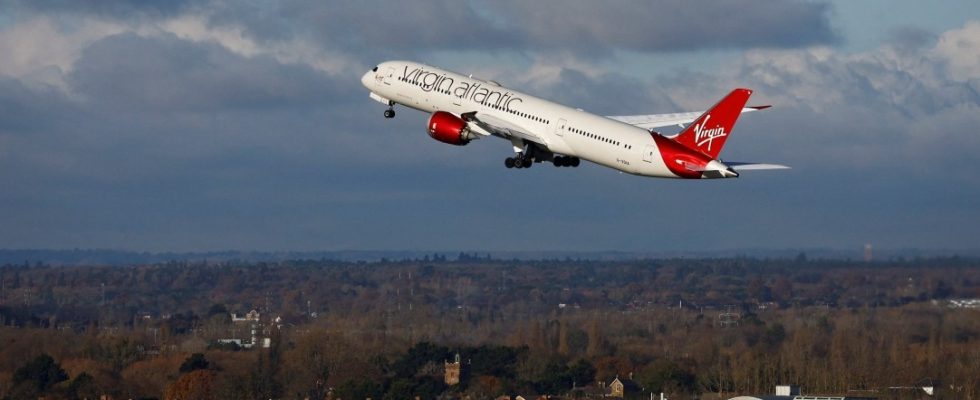So on this day it should be applied thickly. Even before Virgin Atlantic Flight 100 took off at 11:49 a.m. local time from London Heathrow Airport to New York John F. Kennedy, the celebrities were quoted for the occasion. Virgin Atlantic founder Sir Richard Branson couldn’t be prouder, and airline boss Shai Weiss was also “proud to have reached this important milestone.” And Simon Burr, chief engineer at engine supplier Rolls-Royce, was – exactly – “incredibly proud” that Trent 1000 engines from his company were used for the important occasion.
The occasion was the first commercial flight across the North Atlantic to exclusively use sustainable aviation fuel (SAF) made from biomass. Burr, Branson, Weiss, the British Transport Minister Mark Harper and many others from politics and industry flew to New York to give the event further gravitas. Okay, just for the sake of completeness, it should be mentioned that a Gulfstream business jet flew in the opposite direction on November 19th and also only used SAF.
The point is different anyway. In the days leading up to the next world climate conference COP 28 in Dubai, the aviation industry wants to show how seriously it takes its responsibility for the environment and its efforts to become climate neutral as quickly as possible. The flights also serve to show politicians what kind of support the industry needs to become more environmentally friendly.
According to current calculations, aviation is currently responsible for almost three percent of global greenhouse gas emissions. This is slightly less than the emissions from waste management and about a quarter of what agriculture produces. Or about half of the emissions that arise from heating apartments and houses in Germany. Nevertheless, aviation is in focus like no other sector.
Nobody knows where all the alternative fuel will come from
The industry has committed to becoming carbon neutral by 2050, in line with the goals of the Paris Agreement. There are already increasing doubts about whether she can do that. Electric flight and new propulsion concepts such as hydrogen will only be able to make small contributions to decarbonization for many decades to come – the technological hurdles are too great, the development cycles are too long and the costs are too high. Using SAF is “the only viable option,” said Virgin Atlantic boss Weiss, especially for long-haul flights. If SAF fails, aviation’s share of emissions will rise sharply overall, because other sectors will presumably be able to become sustainable more quickly, and aviation will continue to grow despite all the concerns.
The only problem is that there aren’t nearly enough SAF. Current annual production is only enough for 0.1 to 0.2 percent of global demand. The European Commission has stipulated minimum quantities that the industry must achieve in stages, but no one knows where exactly all the alternative fuel will come from. Although there is now a confusing amount of announced projects for large production facilities around the world, many are still waiting for financing commitments from banks due to the unclear legal framework. A conference by the international civil aviation organization ICAO last week has at least defined guidelines for government funding programs – the airlines are pushing for quick implementation.

